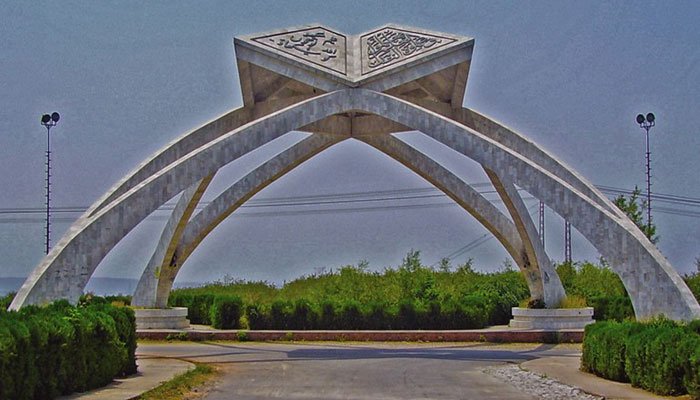ISLAMABAD, October 28: Pakistan is adorned with a multiethnic, multicultural, multilingual and multi-religious society, where people of all folkloric cultures, languages, religious and social groups belonging to different provinces are living together, said Zubaida Jalal Khan, the Federal Minister for Defence Production.
There are 97 percent Muslims of different sects and the remaining three percent belonging to other religions, like Christians, Hindus, Sikhs, Parsis and others. It means that though we belong to different castes, religions and regions and speak different languages we recognize the fact that we are all one. Hence, this kind of integration is very important in the building of a strong and prosperous Pakistan, she opined while addressing as Chief Guest at the Concluding Session of the Two-Day Nation Conference on National Integration and Cultural Assimilation at the PNCA Auditorium here.
The National Institute of Historical and Cultural Research (NIHCR), National Institute of Pakistan Studies (NIPS) and Quaid-i-Azam University (QAU), Islamabad had arranged this conference in collaboration with the Ministry of Federal Education and Professional Training and National Heritage & Culture; Army Heritage Foundation, Centre for Policy Analysis and Development and Paigham-e-Pakistan.
The minister said that the people belonging to minorities should think that they are Pakistanis, who are living with the Muslim majority, who firmly believe that the rights of other religious minorities have to be properly respected and guarded. In this context, the ethnic, cultural, lingual and provincial identities in Pakistan have to be kept next to their respective religions and their common identity of being Pakistanis.
Shehryar Khan Afridi, Chairperson of the Parliamentary Special Committee on Kashmir, in his address as Guest of Honour, said that cultural diversity has acquired an unusual significance. Governments and leaders tend to manifest cultural diversities in their domestic and far-off engagements. We need to respect cultural diversity for assimilation and integration. Hence, social cohesion is undoubtedly the one most essential and indispensable thing every federation strives for, he viewed.
Dr Muhammad Yousuf Khushk, Chairman, Pakistan Academy of Letters, presented seven-point Resolution of the Conference. He underlined that the economic fallout of not addressing the cultural sector could be disastrous. Hence, easing cultural tensions is urgent and necessary for peace, stability, and development of the world.
Prof Dr Muhammad Ali, the Vice-Chancellor, Quaid-i-Azam University, Islamabad, in his vote of thanks, stressed the need to encourage unity and national integration in the society in order to thwart the nefarious designs of the enemies who are out to distract peace and stability in Pakistan by fanning extremism, sectarianism and terrorism. He thanked all the institutions involved in holding the conference, vice chancellors, universities faculty members, students, teachers and officials in general and the President and the Minister of Education for gracing the inaugural session.
Dr Qibla Ayaz, Chairman, Islamic Ideology Council, said that Islamic Research Institute of the International Islamic University, Islamabad launched Paigham-e-Pakistan, a decree issued unanimously by 1829 Muftis and religious scholars of all schools of thought condemning extremism and terrorism and declared the supporters of suicide bombing as traitors thus paving a way for greater national integration and cultural assimilation.
Prof Dr Muhammad Idrees, Dean, Faculty of Social Sciences, Quaid-i-Azam University, Islamabad, told that overall conference organizers received 120 abstracts out of which 38 papers were selected to be presented during the conference proceedings. He greatly appreciated the role played by all the institutions involved in holding the conference in general and that of the NIHCR in particular.
A day earlier while inaugurating this conference, the President Dr Arif Alvi underscored that a cultural narrative of Pakistan defined by the ethos of tolerance and peace was the need of the hour to bring the nation together and transform its cultural diversity into unity. Pakistan’s culture is a beautiful blend of customs and traditions from all provinces contoured by various ethnicities, he said.
The President said Pakistan’s culture was rooted in the notion of co-existence and harmony and emphasized giving a guideline to the nation to exhibit a culture of social acceptance. An interplay of religion and desires could sometimes deviate oneself from the path of tolerance, adding that misery and conflict emerged whenever a certain belief was imposed on others, he said.
Representing the Federal Ministry of National Heritage and Culture, Joint Secretary Muhammad Mureed Rahimoon highlighted the role played by the ministry in providing logistic support to conference organizers.
The Chief Guest also awarded shields to the paper presenters, discussants, chairs of the session and organizers of the conference.
The event was hugely attended by Vice-Chancellors, professors, scholars, historians and students. The audience greatly appreciated two cultural performances by the students of the Quaid-i-Azam University depicting the cultural milieu of all the five provinces and Kashmir.
Earlier, with the arrival of the Chief Guest, the National Anthem was played and the event formally started by recitation from the Holy Quran.
ENDS











